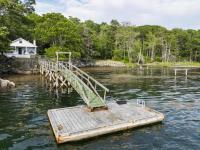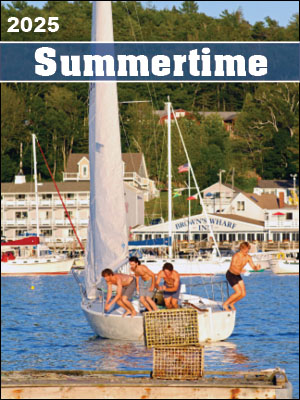BRWD’s $4M water main project bid
Dear Editor:
At the May 7 public meeting on the Southport water main project, concerns were raised about the water QUANTITY and uncertainty of future federal funding—especially under a second Trump administration. That concern remains vital, as the $1.43M loan for this project is just the first step in a broader, multi-million-dollar pipeline initiative plan.
Also at the May meeting, a BRWD representative dismissed the East Boothbay wells—once capable of 200,000 gallons/day—as “a drop in the bucket.” But with daily demand recently hitting 975,000 gallons and topping one million during June’s heatwave, we must ask: how big is the bucket, and are we overlooking valuable local resources?
On July 8, Boothbay Region Water District (BRWD) trustees unanimously accepted a $4.3M bid to convert 8,000 feet of seasonal pipe on Southport to a buried, year-round main. This may improve the reliability of the off season for Southport, but it further commits the region to a costly path for more water without fully exploring local alternatives.
The proposed long-term pipeline from Brunswick-Topsham, last estimated in 2022 at $28M, remains years away and likely far more expensive once permitting, inflation, and delays are factored in. Meanwhile, Knickerbocker and Adams Ponds—our only water sources—are showing signs of ecological stress: PFAS detections, rising algae concerns, shifting vegetation, and low water levels.
Boothbay’s peak summer demands require conservation incentives, storage, and especially drought planning. Ignoring these tools and others in favor of a high-cost pipeline may unintentionally weaken conservation efforts and encourage overdevelopment affecting water quality and quantity.
Groundwater options - including iron high wells in East Boothbay and other areas with high transmissivity - deserve reevaluation using modern treatment technologies. These ideas have been raised for years and warrant serious reconsideration.
Recent Trump-era executive orders called for scientific integrity and climate resilience. Boothbay’s water strategy should do the same: protecting local sources, preparing for extremes, and staying adaptable. The regional pipeline may play a role, but it should not define the plan. Balanced, evidence-based water management is overdue.
Andrew Cozzi
Retired Hydrogeologist
Knickerbocker Pond



























